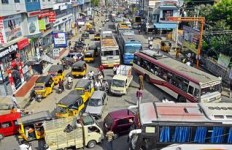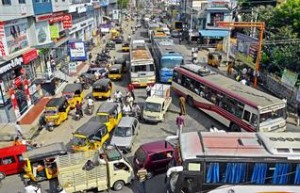
A few weeks ago the most talked about news or the only news in India and midst Indians was Salman Khan’s conviction in an accident case. He was convicted for 3 years in jail because he drove his car onto pedestrians sleeping on the street injuring some and killing 1 person as well. The court concluded that he was drunk and he did not take responsibility for his actions. This happened in the middle of a night in the year 2002. It took 13 years for him to be convicted. It is reported in the media that he is a changed man since that night. He started his own charity called “Being Human” and has helped and touched a lot of lives. If Salman really does want to prove that he has changed the only way he can do it is by accepting it and taking responsibility for the accident. “Sorry” is the word Salman and this will bring peace to himself and the people and their families involved in this case.
This conviction has raised a lot of questions about our judicial system, people’s attitudes, divide between Bollywood and general public, media’s craze for sensation and the poor helpless victims involved and their attitudes. But the most important question is why do these sort of incidents keep happening in our country? It was reported that Salman Khan left dying people under his car and ran to his lawyer’s house. Why and what made Salman do that? Is Salman inhuman? Has Salman not got any remorse or feelings? Probably not then what made him do that? I guess the answer is attitude and culture. In India we have an attitude that money, power and influence can buy anything including the law. This is highlighted in many instances time and again, it’s even shown in Bollywood movies the very own movies where Salman is a high profile star. So it’s the attitude and culture which made Salman run away from the accident and since then he hasn’t stopped running.
There are many instances that people in power get concessions and there is nobody to question it.
- Rahul Gandhi went away on a sabbatical and did not attend the parliament during that time, nobody questions it.
- Sachin Tendulkar Rajya sabha MP has 3% attendance record in the Rajya Sabha and an RTI was raised regarding this. Sachin Tendulkar’s answer was he was tending to his brother who was unwell and so he could not attend Rajya Sabha. The question is did he not leave his house or engage in other activities during this period of time. Imagine how many regular workers in our country would be able to say this answer and still keep their jobs.
- Sanjay Dutt was convicted of having 3 AK 56 rifles at his home illegally. He alleged that he received death threats and he bought these rifles to protect his family. Why would somebody buy AK 56 rifles to protect their family as opposed to a licensed pistol? He was convicted and imprisoned for 5 years. He has been out of jail so many times citing that his wife is not well. Although I have my sympathies for him and his wife, Is this special treatment available for every other prisoner in the country?
- Sunanda Pushkar, wife of Congress MP Shashi Tharoor dies in a hotel under mysterious circumstances. Mr Tharoor was not questioned in relation to this case until an year after his wife’s death and was questioned only when the SIT requested it. If this was any other citizen in any other country the first person to be questioned will be the husband who in this case is Mr Tharoor.
- Devyani Khobragade was arrested in the US on charges of ill-treating her domestic help Sangeeta Richards. Devyani Khobragade’s arrest was not well received by the govt due to the way there diplomat was treated and Indo US relations were sour at that time. The Indian govt seems to be proud that it handled the situation very well but the biggest question is, What happened to Sangeeta Richards and Is she not an Indian citizen and Does the Indian govt not have any responsibility to Sangeeta and her family?
This list will go on and shows how much the law bends over if you are a citizen with money and power. I personally don’t want to judge these celebrities and politicians because given an opportunity to bend the law without any repercussions anybody will abuse it. It’s the system and the culture which is responsible for this.
So let’s see some examples of convictions in UK
- Chris Huhne a politician gets a speeding ticket and he requested his wife to take the ticket as he didn’t want his career to be ruined. So his wife takes the ticket. 10 years later he is a Cabinet Minister from the Liberal democrat party. At this time he and his wife separate and wife admits taking speeding points for her husband. This results in both being jailed for 8 months and Chris Huhne is told to pay 77,500£ in legal costs http://www.bbc.co.uk/news/uk-politics-27350050
- Probably the biggest scandal ever in the UK political circles is the MP’s expenses scandal. MP’s claimed expenses fraudulently for second home, tax evasion etc. This came into light through the FOI act and what followed was something to be applauded. The leaders of the major political parties told their MP’s to pay back all the expenses and most of them have paid back http://news.bbc.co.uk/1/hi/uk_politics/8044998.stm
There is some more to add but the following link http://www.channel4.com/news/out-of-order-politicians-who-ended-up-behind-bars will be a worth a read.
I guess it will be years before this will happen in India. I have often noticed that when I cite examples from other countries we Indians get defensive and try to dig dirt about those countries. I think that attitude should change, the attitude should be to learn from better systems rather than finding fault in their systems.
There are definitely a lot of positives which have come up with this high profile cases
- Social media gives a chance for people to voice their opinions and in all this it’s good to see that people want a change.
- Change is already happening and that’s the main reason Arvind Kejriwal was re-elected in Delhi. They failed when they were elected the 1st time but they were re-elected again with a phenomenal majority and Sorry was the word which got them re-elected. Arvind Kejriwal accepted his mistake and the public magnanimously provided him with a second chance.
- There is a demand for a complete overhaul of our judicial system hoping that will make law equal for everybody.
- When people talk about the poor victims in the Salman Khan’s case it reminds us that humanity still exists within each and everyone of us and that will eventually get rid of the selfishness.
- Strong leadership with an attitude towards positive change is needed and there are definitely some politicians and citizens who are committed towards a positive change.
Finally a positive change can happen only if we accept and forgive our mistakes, once again “Sorry is the word Salman Khan” which changes everything, brings peace and that’s what “Being Human” is.







